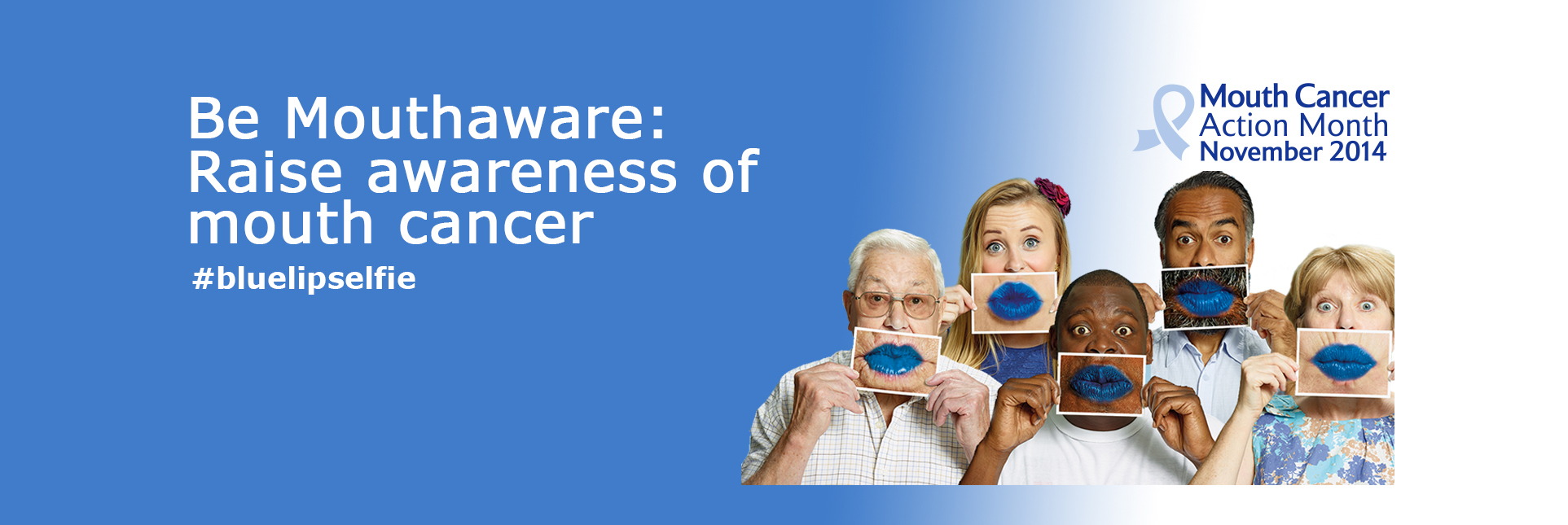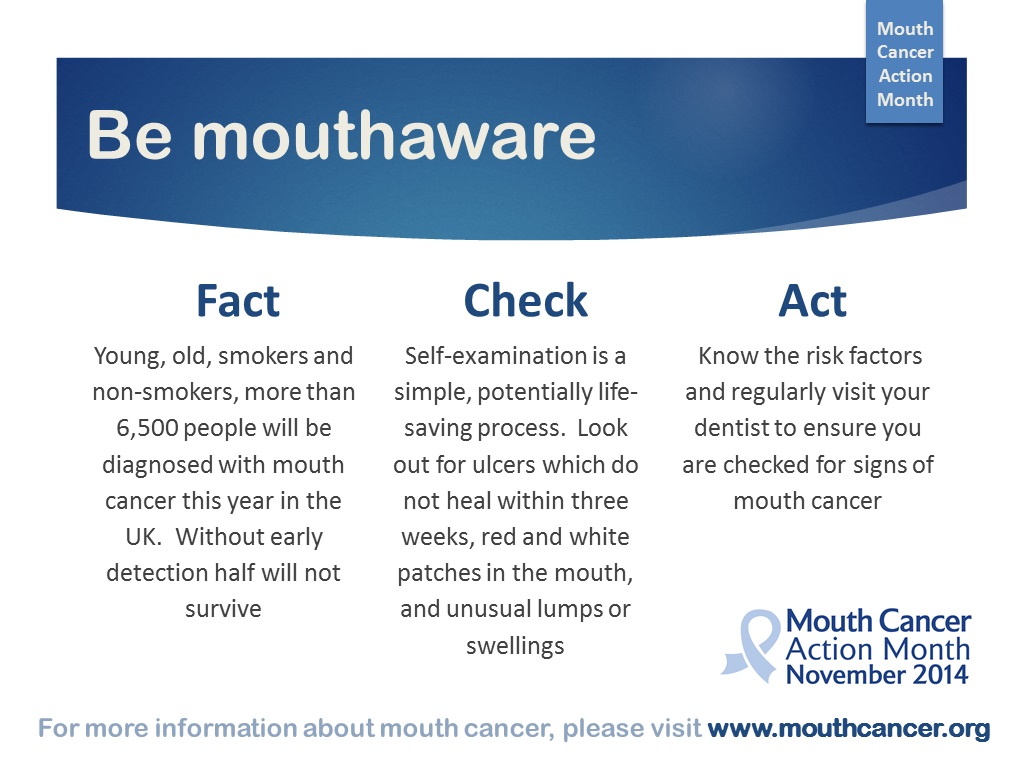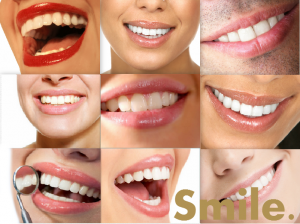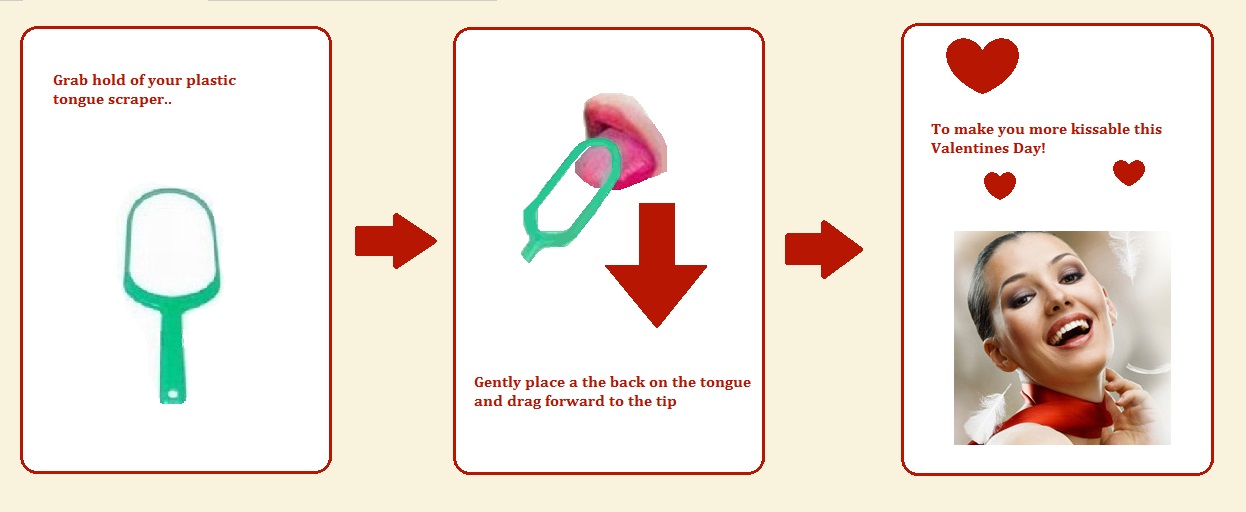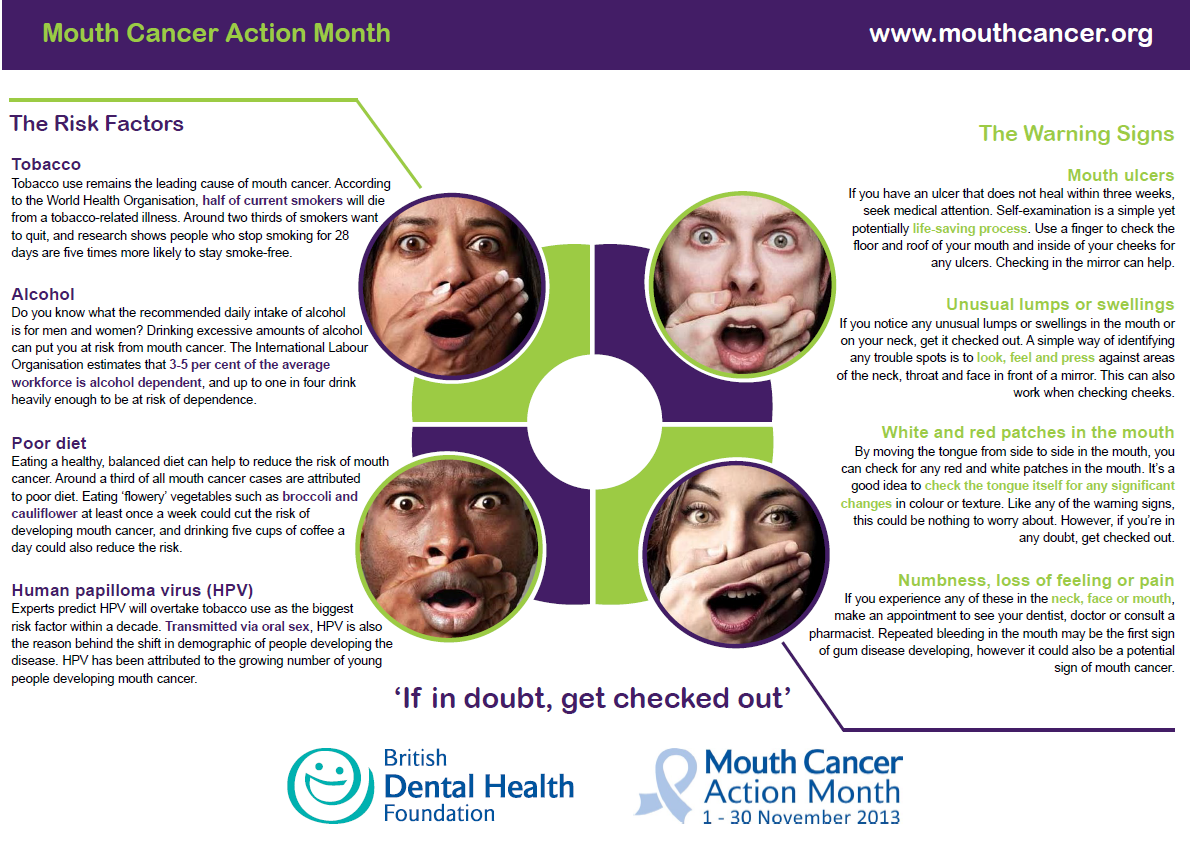Its back. Winter is well and truly here and November is upon us, therefore it is time for Mouth cancer action month.
They have a new marketing campaign, that shouts “if in doubt get checked out” It may not be the most eloquent tag line but it does tell you exactly what you should do if you have any concerns within your mouth.
You may have heard about the ice bucket challenge that has swept across social media sites and the news, mouth cancer awareness are encouraging you to take blue mouth selfies and donate. You can do this here. http://www.mouthcancer.org/bluelipselfie/
However the campaign also promotes awareness and patient education, and explains how to minimise the risks of getting mouth cancer. We all know prevention is much better than cure but early diagnosis is vital with mouth cancer. No one likes the possibility of unfortunate news but getting it checked if you do have concerns with a doctor or dentist is honestly the best thing you can do, if it is something sinister then unfortunately it won’t go away on its own without treatment. If it turns out to be nothing sinister then you have the peace of mind and relief rather than worrying and it weighing heavily on your mind. We all would like a stress free life.
Below I will use the campaign information to act as a simple basic guide.
WHAT SHOULD I LOOK FOR?
Mouth cancer can occur in a number of places including the lips, tongue, gums and cheeks. The signs and symptoms are ulcers that do not heal within three weeks, red or white patches in the mouth or any other unusual lumps or swellings. If you are concerned or notice any of these then we urge you to contact your doctor or dentist immediately.
WHAT CAUSES MOUTH CANCER?
The listed causes of mouth cancer are.
- Smoking: 75% of all mouth cancers are caused by excess smoking.
- Alcohol Consumption: Excess alcohol consumption can increase mouth cancer by four times.
- Smoking and drinking: If you smoke and drink in excess you are 30 times more likely to develop mouth cancer.
- Diet: An unhealthy diet can lead to mouth cancer.
- Sunlight: Over exposure to sunlight can cause cancer of the lips.
- Human Papillomavirus (HPV): This is a sexually transmitted infection increasingly being linked to mouth cancer in young people.
WHAT IS MOUTH CANCER?
- The disease effects lips tongue cheeks and throat.
- There are approximately 6500 new cases every year.
- Anyone can get mouth cancer, more common in people over 40, in particularly men.
- However it is becoming more common in younger patients and women.
- Mouth cancer cases have trebled in the last decade and experts expect this figure will rise in the future.
WHAT CAN I DO TO REDUCE THE RISKS?
- Visit the dentist regularly: 6 monthly or as specified with the dentist. Make sure you talk to your dentist and ensure they are doing these checks.
- Self examination: Look for any of the signs or symptoms above as well as any changes in the mouth.
- Sun Screen: Use sun screen as protection from the sun.
- Diet: A healthy diet rich in Vitamins A, C and E provides protection against mouth cancer.
- Cut Down: Reduce alcohol consumption and smoking. If possible quit altogether.
Below is a link for peoples stories and how they have beat mouth cancer, showing that it is treatable given early detection.
http://www.mouthcancer.org/mouth-cancer-voices/
Any other concerns please contact us or your local GP for advice on 01233 639289.
